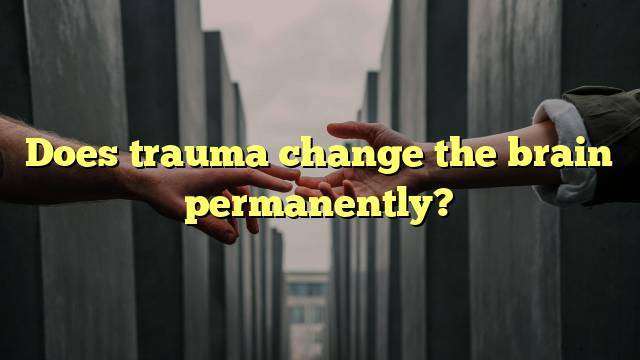Does Trauma Change the Brain Permanently?
Trauma has a profound effect on the human brain, impacting our thoughts, emotions, and behavior for years after the event that caused it. It can also cause lasting changes in the brain’s structure and function. Studies of trauma survivors have found that traumatic experiences can alter the brain’s physiology and chemistry, leading to physical changes that can persist for years.
What Happens to the Brain During Traumatic Stress?
When we experience a traumatic event, our brains go into a state of fight-or-flight, releasing hormones and neurotransmitters like adrenaline, cortisol, and norepinephrine. This activates the sympathetic nervous system and triggers a release of energy, allowing us to respond quickly to a perceived threat.
At the same time, our brain’s fear network becomes activated. This includes the amygdala, hippocampus, and prefrontal cortex. The amygdala is responsible for processing emotion, while the hippocampus is responsible for forming memories. The prefrontal cortex is responsible for higher-order thinking, such as decision-making, problem-solving, and impulse control.
Effects of Traumatic Stress on the Brain
When the fear network is activated, the brain’s stress system is also activated. This causes the release of hormones and neurotransmitters that can have long-term effects on the brain. Over time, these effects can alter the brain’s structure and function.
Some of these changes can be beneficial, such as enhanced learning and memory abilities. However, other changes can be harmful, such as impairments in cognition and increased vulnerability to anxiety and depression.
Impact on Brain Areas Implicated in Stress Response
Research has found that traumatic stress can lead to lasting changes in the brain’s structure and function. It can lead to decreased volume in the hippocampus, which can impair memory formation and retrieval. It can also lead to increased volume in the amygdala, which can increase the likelihood of experiencing fear and anxiety.
Traumatic stress can also lead to changes in the prefrontal cortex, which can impair decision-making, problem-solving, and impulse control. These changes can lead to increased risk-taking behavior and difficulty regulating emotions.
Long-Term Effects of Trauma on the Brain
The long-term effects of trauma on the brain can be significant. Traumatic stress can lead to memory problems, difficulty regulating emotions, and increased risk-taking behavior. It can also lead to increased vulnerability to anxiety and depression.
These changes can persist long after the traumatic event, affecting the way we think, feel, and behave for years to come. Fortunately, there are several treatments available to help trauma survivors cope with these changes, including cognitive-behavioral therapy and mindfulness-based stress reduction.
Conclusion
Trauma can have a significant impact on the brain, leading to lasting changes in its structure and function. These changes can affect our thoughts, emotions, and behavior for years after the traumatic event.
Fortunately, there are treatments available to help trauma survivors cope with these changes, such as cognitive-behavioral therapy and mindfulness-based stress reduction. These treatments can help trauma survivors to better manage their symptoms and lead more fulfilling lives.
